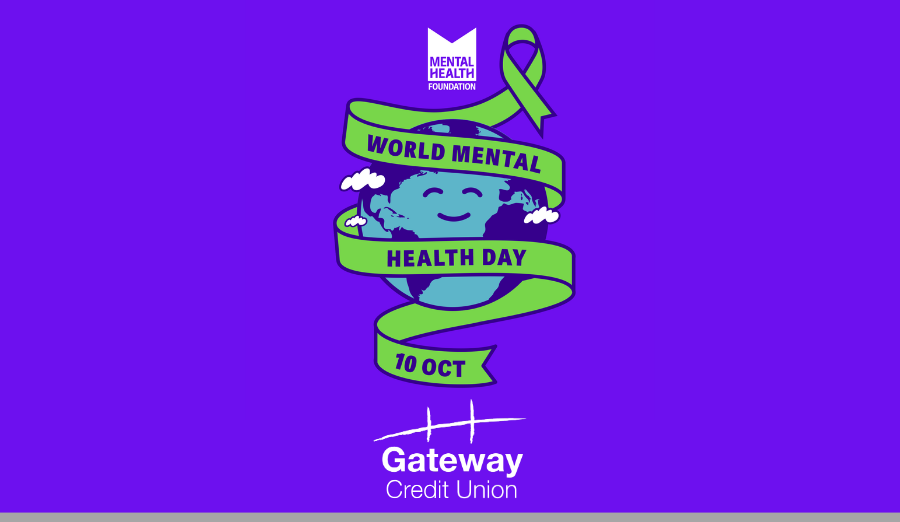03 November 2025
Stop the Silence: How Talking About Money Transforms Your Financial Life
Money. It’s something we all think about, earn, spend, and worry over—yet for many of us, it’s one of the hardest things to talk about. We’ll happily discuss weekend plans or TV shows, but ask someone how they’re doing financially, and the conversation usually stops cold.
This silence can have real consequences. Avoiding money conversations can lead to misunderstandings, financial stress, or missed opportunities to get help and support. That’s why this Talk Money Week, we’re joining the call to “Start the Conversation.” Because the more we talk about money—openly, honestly, and without judgment—the stronger and healthier our financial lives become.
🤫 Why We Avoid Talking About Money
Let’s be honest: talking about money can feel awkward. Maybe you were raised to think it’s rude to talk about finances, or you’re afraid of being judged for earning too little, spending too much, or not saving enough.
Here are some of the most common reasons people avoid money conversations:
- Shame or embarrassment – People often feel anxious admitting they’re struggling or that they don’t fully understand financial jargon.
- Fear of conflict – Money disagreements can put strain on relationships, so many choose silence to avoid arguments.
- Cultural or family norms – In many households, money was never discussed openly, setting a pattern that carries into adulthood.
- Uncertainty – Sometimes we just don’t know where to start or what to say.
But the truth is, staying quiet doesn’t make financial worries go away. In fact, silence can make them worse. The key to financial wellbeing isn’t perfection—it’s communication.
✅ The Benefits of Talking About Money
When you start talking about money, something powerful happens: you break down the barriers that keep people isolated in their worries. You might discover that others share your challenges, have great tips to offer, or can simply lend a listening ear.
Here’s how talking about money can make a real difference:
- It reduces stress – Money is one of the biggest causes of anxiety. Sharing your concerns helps release pressure and reminds you that you’re not alone.
- It builds understanding – When families, friends, or partners talk about their financial goals and challenges, they make better decisions together.
- It encourages learning – Conversations about saving, credit, and budgeting naturally lead to sharing advice and finding new ways to manage money.
- It strengthens communities – When people in a community support one another financially—through credit unions, local savings groups, or advice networks—everyone benefits.
Money conversations are like shining a light in a dark room: things become clearer, easier to manage, and far less scary once they’re out in the open.
🔑 How to Start the Conversation
The hardest part of talking about money is often just starting. But once you take that first step, it becomes easier over time. Here are some simple, practical ways to open up the discussion:
- Pick the right moment – Choose a calm, comfortable time—like over coffee, after dinner, or during a car ride.
- Be open and kind – Use phrases like "I’ve been thinking about saving more lately, how do you handle it?" instead of direct questions about income or debt.
- Use a goal as a starting point – Talk about shared goals like saving for a holiday, paying off a credit card, or building an emergency fund.
- Keep it small – You don’t have to cover everything in one chat. Talking about one aspect at a time makes it easier and less intimidating.
You could also use national campaigns like Talk Money Week as an icebreaker—"I saw something online about Talk Money Week. Have you ever talked about finances like that before?"
Talking About Money at Home
Honest money talk builds trust and sets your family up for the future.
- With your partner – Set regular check-ins to review spending, goals, and any worries.
- With children – Simple lessons like "save a little, spend a little, give a little" help them form positive habits for life.
- With older relatives – These discussions can prevent future stress around care costs or financial support.
Talking About Money with Friends
It’s easy to assume that money is off-limits with friends, but sharing experiences—especially about everyday spending or saving goals—can be empowering. For example, if you’re planning a night out, it’s perfectly okay to say, "Let’s find something affordable, I’m trying to save right now." Others will often appreciate your honesty.
Talking About Money in the Workplace
Financial stress impacts focus and productivity. See if your employer offers payroll saving options with Gateway Credit Union. These schemes make saving simple—you can save directly from your wages, building financial security effortlessly over time.
🤝 How Gateway Credit Union Can Help You Start the Conversation
At Gateway Credit Union, we believe in the power of community and conversation. As a member-owned credit union, we’re not driven by profits—we’re driven by people. That means we’re here to listen, guide, and support your financial wellbeing every step of the way.
Here’s how we can help you start your own money conversations:
- Free financial advice and guidance – Our team can help you explore saving options, responsible loans, and budgeting tips.
- Savings accounts for everyone – We make it simple to save for emergencies, special occasions, or long-term goals.
- Community resources – We regularly share educational content to help normalise money talk.
Simple Prompts to Get You Talking
If you’re ready to start your own conversation, try one of these easy prompts:
- “What’s one thing you wish you’d learned about money earlier?”
- “What’s your biggest saving goal right now?”
- “What’s one financial habit you’d like to improve this year?”
🌊 The Ripple Effect of Talking About Money
When you talk about money, you do more than just improve your own finances—you help change the culture around money itself.
Every conversation you start can inspire someone else to take control of their finances, reach out for help, or start saving. And in a community like ours, those ripples add up to something powerful.
Money shouldn’t be a source of shame or silence—it should be a topic we can all approach with honesty, kindness, and curiosity.
So, this Talk Money Week, we encourage you to start the conversation. Talk to your partner, your kids, your friends, or even just yourself. Ask questions, share experiences, and take small steps together toward financial confidence.
Because when we talk about money, we take the first step toward changing our financial lives—and strengthening our community, one conversation at a time.









